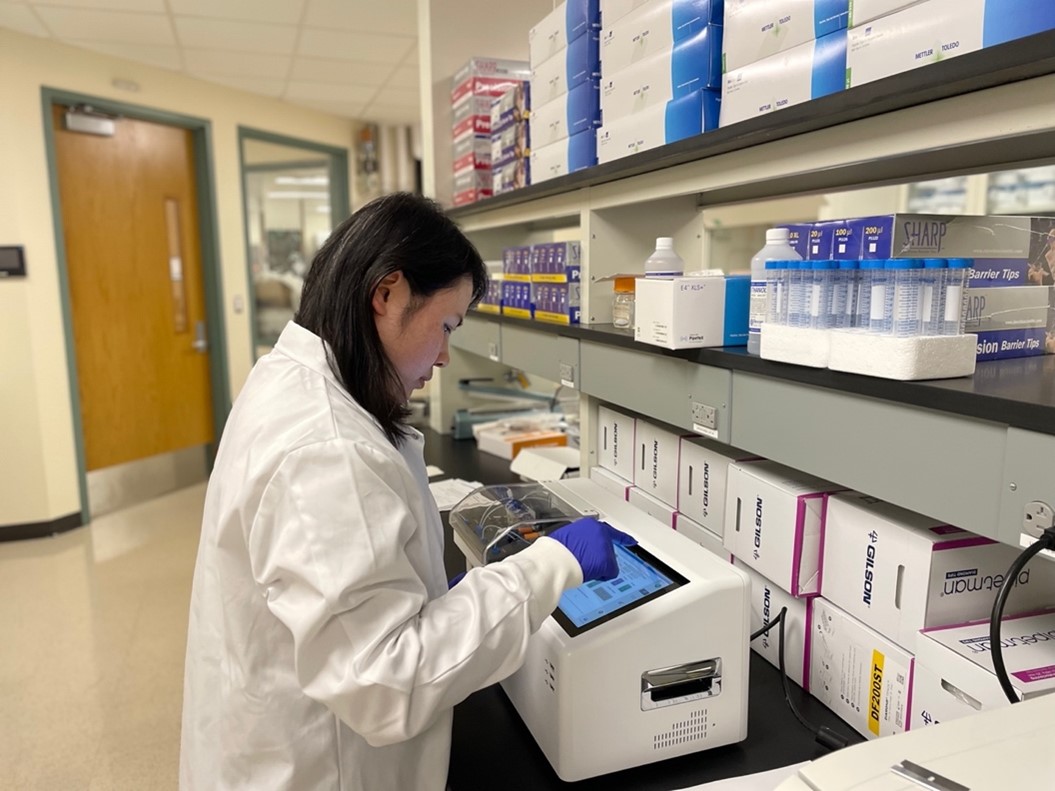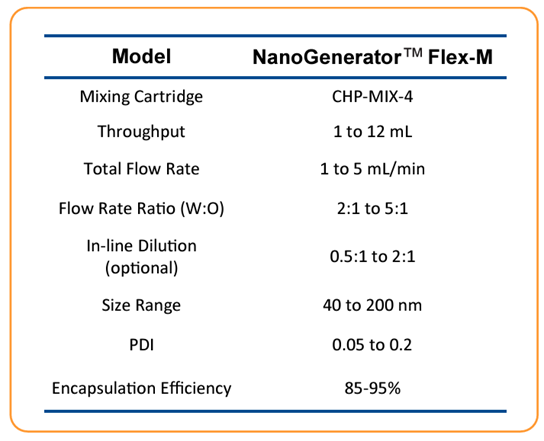The Tumor Engineering and Phenotyping (TEP) facility, a Cancer Center at Illinois (CCIL) shared resource, is here to accelerate your discoveries with the addition of a new instrument for nanoparticle synthesis. The PreciGenome NanoGenerator™ Flex-M utilizes a microfluidic approach to reproducibly synthesize high quality lipid nanoparticles in just ten seconds.
“Nanoparticles, especially lipid nanoparticles, have shown great potential for biomedical applications because of their excellent properties. They are used in a variety of fields such as the pharmaceutical industries for applications including drug delivery, mRNA vaccines, and biosensing,” said Hui Xu, TEP Research Coordinator. “The PreciGenome NanoGenerator™ is a high-performance instrument for nanoparticle synthesis including lipid nanoparticles, liposomes, and PLGA.”

TEP Research Coordinator Hui Xu using the new NanoGenerator™ Flex-M
Compared to traditional batch methods, the NanoGenerator Flex-M ensures consistent quality and encapsulation efficiency and allows researchers to have precise control over particle size. Nanoparticles generated using this system also demonstrate increased uniformity and narrow size distribution and can be produced in wide-throughput ranges from 1 to 12 milliliters. This benefits CCIL researchers by guaranteeing speed, cost-effectiveness, and reliability of nanoparticle synthesis for applications ranging from initial screening to preparing larger quantities for animal models.
If you are interested in using the NanoGenerator Flex-M, more information and the training protocols to use this system can be found on the TEP website.
Whether you are a first-time or returning TEP user, we want to hear from you. “What is one thing the TEP can do to better support your research?” Respond here.

Schematic of oligonucleotide based Lipid Nanoparticle synthesis

Instrument features of the PreciGenome NanoGenerator™ Flex-M
Editor’s notes:
This story was written by Katie Brady, CCIL Communications
